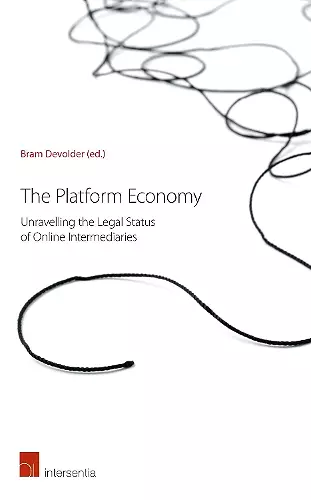The Platform Economy
Unravelling the Legal Status of Online Intermediaries
Alain Strowel author Wouter Vergote author Nicolas Van Damme author Friso Bostoen author Marie Jull Sorensen author Liyang Hou author Valerio De Stefano author Bram Devolder editor
Format:Hardback
Publisher:Intersentia Ltd
Published:23rd Jan '19
Should be back in stock very soon

This non-fiction hardback, "The Platform Economy" from Alain Strowel, Wouter Vergote, Nicolas Van Damme, Friso Bostoen, Marie Jull Sorensen, Liyang Hou, Valerio De Stefano & Bram Devolder, was published 23rd January 2019 by Intersentia Ltd.
ISBN: 9781780686349
Dimensions: unknown
Weight: 825g
398 pages